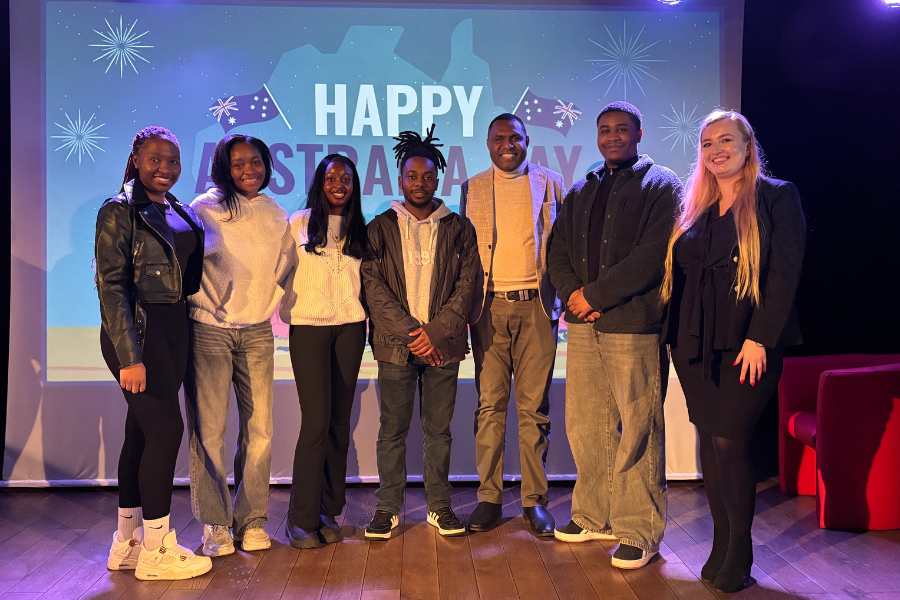We warmly invite you to take part in our upcoming series of lectures, designed to expand your knowledge in diverse and engaging ways.
At our university, we believe that learning happens in many forms, and this series is a perfect example of how knowledge can be gained through different approaches. Don’t miss this chance to deepen your understanding and connect with experts in the field!
We invite you to a new series of open lectures organized in the summer semester. The meetings will be hosted by well-known and respected professors from Canada, the USA, and the UK. Invited speakers will present topics related to climate change, artificial intelligence and planetary awareness.
10.03.2025 (Monday), 5PM, online
„Modern Humans: Unsustainable by nature and nurture” – William Rees, University of British Columbia’s School of Community and Regional Planning, Kanada
Modern techno-industrial (MTI) society is in a state of advanced ecological overshoot. Overshoot means that the human enterprise is consuming even renewable and replenishable resources faster than ecosystems can regenerate and producing (often toxic) wastes in excess of nature’s assimilation capacities. In simpler terms, there are too many people consuming and polluting too much. Overshoot is ultimately a terminal condition; H. sapiens is destroying the biophysical basis of its own existence and driving the modern human enterprise down the road to collapse. Regrettably, governments, international institutions and most ordinary people act as if blind to the problem. How can we explain this conundrum? I make the case that modern humanity’s potentially fatal predicament springs from deep roots in both human nature and contemporary social constructs, including neoliberal economics. In short, the unsustainability of global society is a natural phenomenon reinforced by flawed cultural narratives. There are no politically acceptable solutions.
William Rees is an ecologist, ecological economist, Professor Emeritus and former Director of the University of British Columbia’s School of Community and Regional Planning. He researches global ecological trends with special interests in cities as vulnerable components of the human ecosystem and in the psycho-cognitive barriers to societal change. Prof Rees is the originator and co-developer (with his graduate students) of ‘ecological footprint analysis’ (EFA). He has authored hundreds of peer-reviewed and popular articles on the above topics. A Fellow of Royal Society of Canada, Prof Rees is also a founding member and former President of the Canadian Society for Ecological Economics, a founding Director of the One Earth Living Initiative and a Fellow of the Post-Carbon Institute. Internationally recognized, Prof Rees is a recipient of a Trudeau Foundation Fellowship and both the international Boulding Prize in Ecological Economics and a 2012 Blue Planet Prize (jointly with Dr Mathis Wackernagel). He also received the 2015 Herman Daly award from the US Society for Ecological Economics and, in 2016, a Dean’s Medal of Distinction from UBC’s Faculty of Applied Science. Prof Rees was a full member of the Club of Rome from 2014 – 2019.
14.04.2025 (Monday), 5 PM, online
„My Life with ChatGPT” – Bary Smith, University at Buffalo, USA
I will provide an overview of positive and negative features of Large Language Models (LLMs) such as ChatGPT, and review critically claims to the effect that LLMs will serve as an offramp for the sort of Artificial General Intelligence (AGI) that will grant them intellectual powers comparable with those of human beings.
Barry Smith is one of the most widely cited contemporary philosophers. He has published some 600 scientific papers, and authored or edited 21 books, and he has made influential contributions to the foundations of ontology and data science, especially in the biomedical domain. His work has led to the creation of an international standard in ontology (ISO/IEC 21838), which is the world’s first example of a piece of philosophy that has been subjected to the ISO standardization process. This standard forms the basis of some 700 ontology initiatives throughout the world, and its use is mandated by multiple US government agencies. Most recently he has co-authored a book entitled Why Machines Will Never Rule The World, which attempts to dismantle the current hype on behalf of so-called ‘artificial intelligence’.
12.05.2025 (Monday), 12 AM, Main Lecture Hall RA3
„Whose Planetary Consciousness?” – Sunil Amrith, Yale University, USA
Recent work has suggested that the emergence of planetary consciousness marks a threshold in human life on a fast-warming planet. This lecture traces the origins of one strand of „planetary consciousness” to the early twentieth century and asks how far that way of seeing life on Earth continues to be marked by its imperial origins. Drawing on Indian debates from the last quarter of the twentieth century, it asks: does planetary consciousness stand in the way of earthly justice?
Sunil Amrith is the Renu and Anand Dhawan Professor of History at Yale University, with a secondary appointment as Professor at the Yale School of the Environment. He is also current Chair of the South Asian Studies Council at Yale’s MacMillan Center. Amrith is the author of five books, most recently The Burning Earth (W.W. Norton and Allen Lane, 2024), selected as a “book of the year” by The New Yorker and The New Statesman in 2024. It is being translated into 9 languages. Amrith is a 2017 MacArthur Fellow, and recipient of the 2022 Heineken Prize in History and the 2024 Fukuoka Academic Prize.
02.06.2025 (Monday), 5 PM, online
„Communicating Climate Change” – Michael J. Reiss, University Collage London’s Faculty of Education and Society, United Kingdom
For some people, climate change is an existential threat; to others, it is an overstated issue or even a hoax. How are we to handle this great diversity of views? In schools, should we teach climate change as a controversial issue? Should we permit or ban climate change deniers from posting on social media? And how does the controversy over climate change relate to controversies over vaccination and creationism? In this lecture, I will address such questions.
Michael J. Reiss is Professor of Science Education at UCL’s Faculty of Education and Society, a member of the Nuffield Council on Bioethics, a Fellow of the Academy of Social Sciences, and Chair of UCL’s Centre for Climate Change and Sustainability Education. The former Director of Education at the Royal Society, President of the International Society for Science and Religion, and President of the Association for Science Education, his academic interests are in science education, bioethics, sex education, and science and religion.


